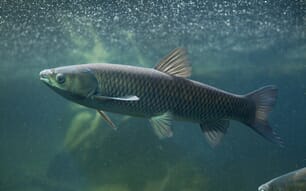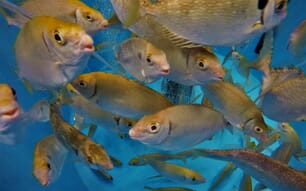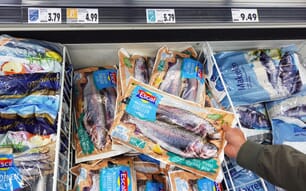In the past, the general thoughts were that fish are cold blooded and therefore that they do not feel pain. However, over the last 20 to 30 years more people have become concerned about the welfare of fish and it has been proved the good fish welfare also pays in terms of better performance, better growth, better food conversion, better survival and better resistance to disease, said Mr Southgate.
Work by Dr Lynne Sneddon, Liverpool Veterinary School, has also shown that not only do fish feel pain, they have also got all the sophisticated receptors that humans have for pain response. Fish have also been found to demonstrate a response to fear and stress and many species have also been found to have a long term memory of painful or fearful situations.
Since 1966, the classic Five Freedoms structure has been used to look after animal welfare and it is applicable to fish.
The structure states that animals should be free from hunger, thirst and malnutrition. They should be free from discomfort, fear and distress. They should also be free from pain, injury, and disease and they should be free to express normal behavior.
Despite the progress made towards providing excellent fish welfare, notably in terms of good management, good environmental control, addressing stocking density issues and humane killing, the aquaculture industry still faces challenges.
"The areas of the challenges that we have in fish welfare can be summarised under these headings: Health management; General management, including crowding, transportation and growing and; various environmental aspects which look at the effects of the environment on fish stocks. We also need to have good ways of assessing and monitoring fish welfare which we don’t really have as yet," said Mr Southgate.
One challenge is that farmers are coming up against new diseases for which there is no or little treatment. Treatments can often be difficult to administer through feed, as fish often go off feed when ill and bath treatments can be hard in arge cages. With the added restrictions on use due to environmental protection and withdrawral periods before harvesting, farmers can find it difficult to help alieviate suffering in the fish. Simmilarly, fish that are organic can also be limited with medicines available.
Another area that needs to be addressed is production diseases. The Five Freedoms say fish should not be malnourised, but there are situations where fish can suffer malnutrition and consequent pathologies.
Harvesting fish is another area to be addressed as fish are often crowded so they can be removed easily. While some fish do not mind crowding, others, such as cod, can become stressed and try to escape, so different methods of harvesting need to be explored.
One of the biggest welfare issues that aquaculture faces is the exposure of fish to the environment. It is not possible to protect fish against everything that the environment throws at it.
"One of the freedoms is freedom to express normal behavior. The normal behavior of fish exposed to an adverse environment it flight. They want to escape. They’ll swim away to somewhere where the environment is less fearful. They can’t do that if you confine them in cages so we have a duty of care over this, to try to protect them to the best of our ability against these adverse environments," said Mr Southgate.
Lastly, farmers also face a challenge of how to assess fish welfare. A good way to do this is by having it as part of your Veterinary Health Plans and the use of new technologies to monitor fish behaviour and observe welfare indicators such as depth of respiration.




